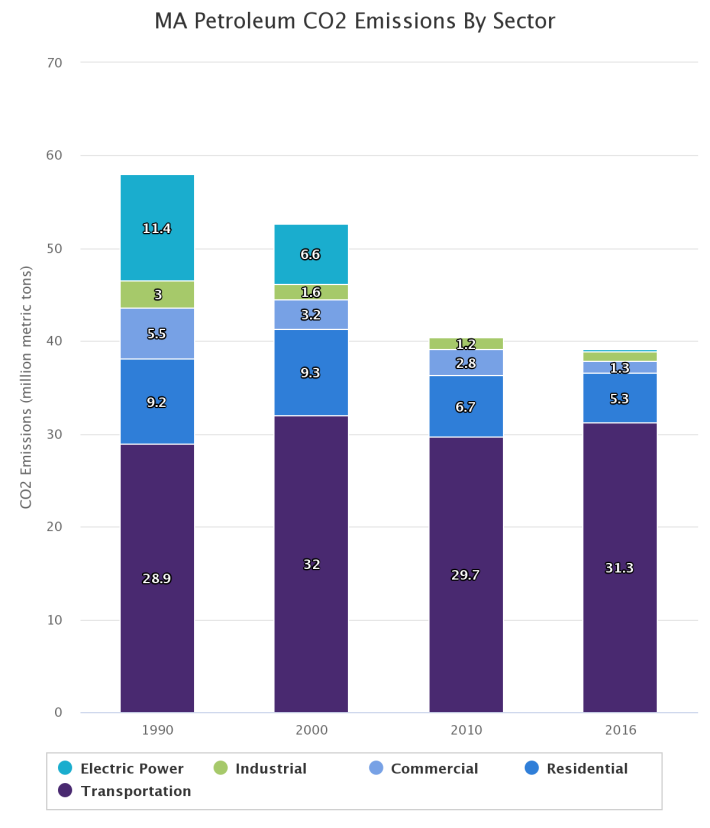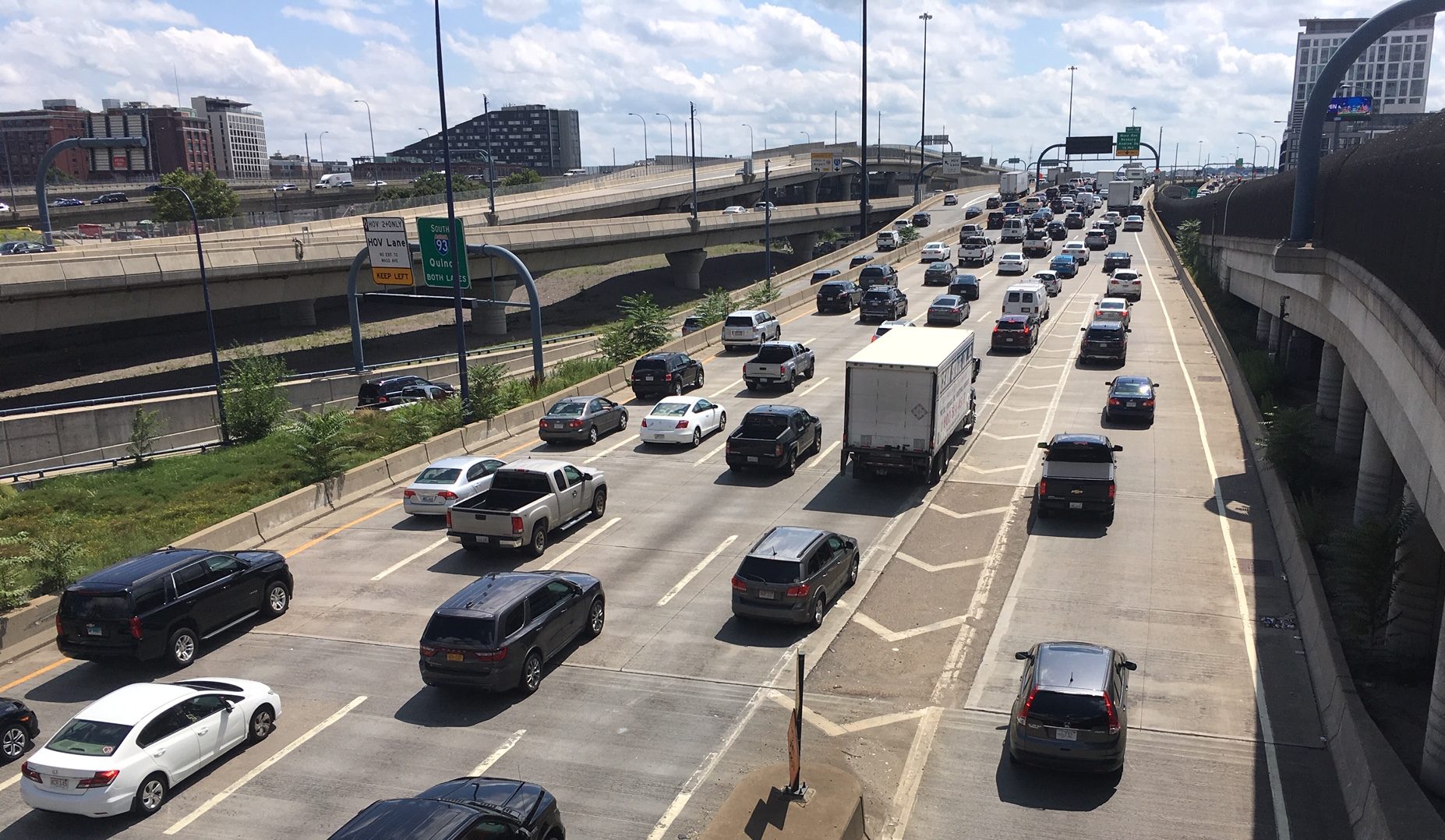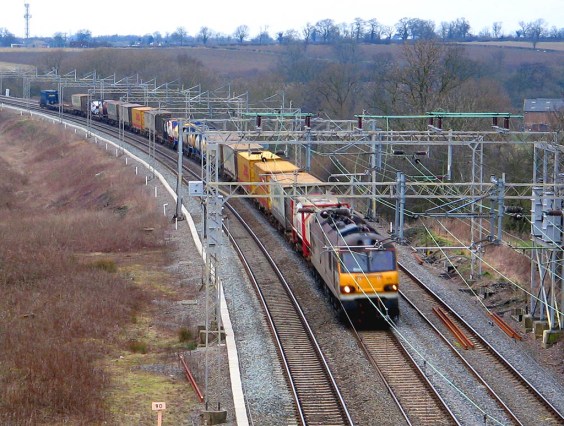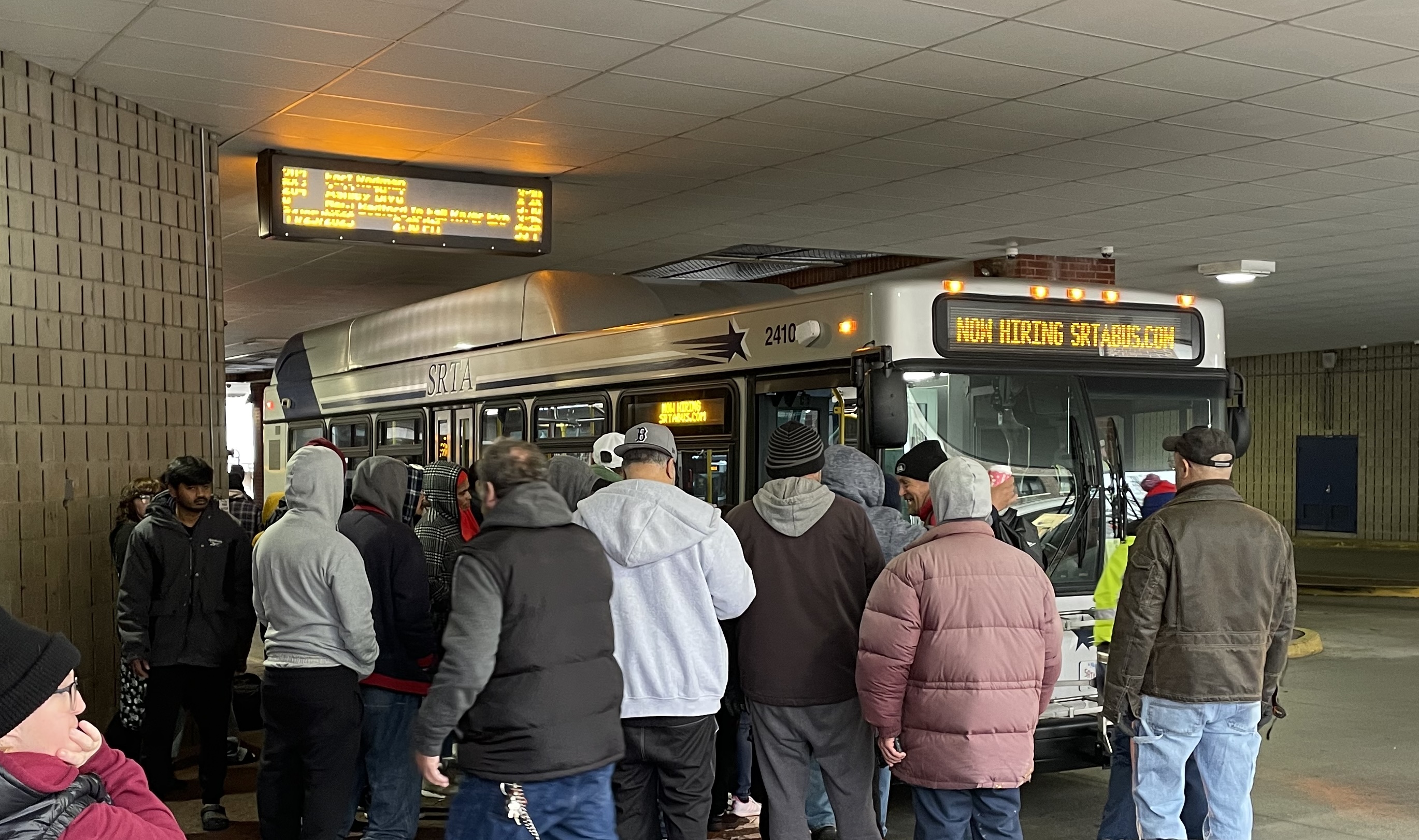At a public workshop in Chelsea Tuesday evening, Massachusetts officials said that they are committed to improving air quality and funding better transit options, particularly in low-income and racially diverse communities, while they design a new "cap and invest" program to reduce greenhouse gas emissions from cars and trucks.
Twelve states and the District of Columbia are collaborating under the Transportation and Climate Initiative (TCI) to agree on new policies aimed at reducing climate-heating emissions from fossil-fueled vehicles.
The program is modeled on the Regional Greenhouse Gas Initiative (RGGI), which has been regulating emissions from the region's electric power plants since 2008. By making fossil-fueled power plants pay for the emissions they generate, RGGI has encouraged utilities to shut down older coal-burning plants while also generating billions in new public revenue that states have used to fund energy efficiency programs and to lower residents’ electric bills.
Now, many of the same states that participate in RGGI are looking to apply the same concept to the transportation sector, which is the region’s biggest source of climate-heating pollution.

In introductory remarks at Tuesday’s workshop in Chelsea, Kate Fichter, Assistant Secretary at MassDOT, warned that regulating millions of exhaust pipes across the northeast will be more difficult than regulating a few dozen regional power plants.
“Transportation has been a very challenging nut to crack,” said Fichter. “But that is what we are trying to do here with this effort."
To receive feedback and build support for the potential program, state officials have been hosting a series of community engagement workshops across the state this summer to talk about TCI’s potential benefits.
The Chelsea workshop's attendees, gathered in a school cafeteria located just across the tracks from the oil terminals that line Chelsea Creek, were mostly focused on improving public transit and improving air quality in the communities that suffer the worst health impacts from highway pollution.
“We want to ground this conversation in the communities that are most impacted by the climate crisis, and for any and all revenue (from TCI) to be invested in equitable ways," said Maria Belén Power of GreenRoots, a Chelsea environmental justice nonprofit.
In 2016, Massachusetts motorists pumped about 32 million metric tons of climate-baking pollution into our skies. If TCI charges gasoline and diesel fuel suppliers $15 per ton of pollution - a price similar to what California’s most recent cap-and-trade auctions yielded - then Massachusetts would receive roughly $480 million in new revenue.
In his recent transportation bond proposal, Governor Baker suggested that “up to half” of new revenue from TCI could be earmarked for transit.
These new funds may not fill the MBTA’s $10 billion repair backlog on their own. But the program could make a substantial difference to the state’s Regional Transit Authorities, which currently get only $87 million a year in state funding, or provide a hearty down payment on key MBTA projects like the Red-Blue connector.
The participating states hope to have a draft TCI policy framework ready this fall, and it will take several more months to finalize the new rules and get final approval from all participating jurisdictions. It will be 2021 at the earliest before Massachusetts will start collecting funds from the program.
The state will host a sixth and final regional workshop to discuss potential TCI policies at Bristol Community College in Fall River on August 22.






